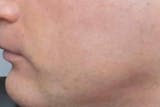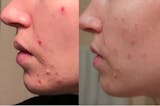An overview of eczema, including its potential triggers and symptoms.
How the three main pillars of eczema - skin barrier, trigger control, and immune control - can affect your eczema and what you can do about it.
Eczema can refer to several chronic skin conditions that affect millions of people worldwide.
The most common type of eczema is atopic dermatitis. When people use the term eczema without defining the type of eczema they are referring to, they are generally referring to atopic dermatitis. Please check out our article on the types of eczema to learn about all the types and how they differ.
Atopic dermatitis is characterized by periodic acute flares, marked by red, itchy, and inflamed skin. The severity and duration of an acute eczema flare are influenced by three main factors:
The key to managing atopic dermatitis involves understanding the condition, identifying personal triggers, and implementing lifestyle changes and treatment.
Here we are going to cover what eczema is in general (all types). We do that by first explaining how the skin is structured, then how skin function (including how it malfunctions in eczema), and finally covering the three-pillars of eczema management.
JUMP TO SECTION:
Your Eczema Is Your Eczema
Eczema is a complex condition that manifests as a group of symptoms, which can vary in terms of which symptoms arise, the area coverage and severity. There are also various potential triggers for eczema, which can also vary in sensitivity, leading to significant variability in the condition.
An individual can have an issue with any, or a combination of, skin barrier strength, triggers, or their immune system. And the weight of those factors can change over the course of time. As a result, there is no single definitive treatment for eczema, and a variety of potential treatments exist.
To manage eczema effectively, it is important to understand the specific symptoms present, which can indicate what triggers might exist, and what treatments might work.
Skin Structure
The human skin is an intricate, multitasking organ that can be divided into three primary layers: the epidermis (skin barrier), dermis, and subcutaneous (or hypodermis) layer.
The subcutaneous consists of fat and connective tissue, providing insulation and cushioning for the body. The dermis is made up of connective tissue, hair follicles, blood vessels, lymphatic vessels, and sweat glands, forming a strong, flexible foundation.
The epidermis, akin to the outermost wall, is a waterproof layer responsible for protecting the body from external threats. The epidermis itself is composed of multiple layers, starting with the basal layer at the bottom, moving through the spinous layer, and culminating in the stratum corneum at the surface.(LOP 2022)
New cells are born in the basal layer and migrate upward as they mature, ultimately hardening and connecting with ceramides to form what most people think of as the “skin barrier”: the stratum corneum.(CAR 2017)
Skin Function and Eczema
Healthy skin serves a variety of crucial functions, from protection to sensation.
Protection
Like a fortress against external threats, the skin acts as a physical barrier, defending against harmful substances, UV radiation, and pathogens. In eczematous skin, the skin barrier is compromised, similar to a castle wall with structural damage. The skin is therefore not able to offer full protection.
Barrier Function
The skin barrier maintains hydration by preventing water loss, similar to a castle wall that keeps out unwanted elements while preserving valuable resources within.
In eczematous skin, a lack of ceramides, lipids, and structure in the skin barrier causes dryness, increasing transepidermal water loss (TEWL) and allowing triggers to pass through the barrier.
Immune Defense
The skin is a first-line player in the immune system. A strong skin barrier acts as a physical blocker, but beyond that, the skin is equipped with an adaptive immune system specialized to protect against specific pathogens and other harmful substances.
The microbiome on the skin’s surface often works symbiotically with the adaptive immune system of the skin to signal and modulate the overall immune response.
Often in eczematous skin the relationship with the microbiome is poor and the body has an overactive innate immune response. With this, and in combination with a weaker skin barrier, the skin has a harder time modulating the immune reaction to triggers.
Sensation
With sensory receptors detecting touch, pressure, temperature, and pain, the skin allows us to perceive our environment and respond to stimuli.
Individuals with eczema experience itchy sensations, pain, and discomfort, affecting their interaction to the world.
Thermoregulation
The skin regulates body temperature by controlling heat loss through sweat production and blood flow.
During an acute eczema flare, the blood vessels dilate allowing the blood to deliver immune cells to the affected areas. This process can disrupt the natural thermal regulation, resulting in warm patches of skin at times when the body might need to conserve that heat and making the body more sensitive to temperature changes in the environment.
Aesthetic Appearance
Healthy skin contributes to our aesthetic appearance, affecting self-esteem and quality of life.
Eczema can lead to skin discoloration, dryness, cracking, and bleeding, diminishing one's aesthetic appearance.
Vitamin D Synthesis
The skin contains a precursor to vitamin D that is converted to its active form when exposed to UV radiation. Vitamin D is essential for bone health, immune function, and other physiological processes.
Eczema sufferers are more likely to have a vitamin D deficiency.
Three Pillars of Eczema Management
There are three pillars to healthy skin: skin barrier, trigger control and immune control.
If any one of these pillar has a problem, then eczema symptoms will flare. An individual may have problems with one or more of the pillars and these can vary over time. The different types of eczema treatment can be split into categories corresponding to the pillars of eczema management.
Skin Barrier
As discussed earlier in this article, the skin barrier plays a crucial role in protecting the body from external irritants and maintaining moisture levels.
The skin barrier can be considered the walls, bricks and mortar, of a castle. People with eczema have a weakened skin barrier, which make their skin more susceptible to irritants and allergens.
The skin barrier must heal before the eczema symptoms stop.
Trigger Control
Eczema is often caused by the so called "triggers". Environmental factors such as irritants, allergens, and changes in temperature and humidity serve as triggers.
Identifying and avoiding triggers is an essential part of managing eczema. Some common forms of triggers include harsh soaps and detergents, wool and synthetic fabrics, dust mites, pet dander, and certain foods. Learn more about triggers in the triggers section.
By minimizing exposure to these triggers, individuals with eczema can reduce the severity and frequency of their symptoms. If these triggers are not managed properly, the skin barrier will continue to sustain damage and resulting immune response will continue.
Immune Control
The immune system plays a critical role in eczema, as it is responsible for the inflammation that leads to the characteristic red, itchy, and inflamed skin associated with the condition.
The immune system's response to triggers is complex and involves several types of immune cells and chemical messengers, such as cytokines, chemokines, and antibodies.
In people with eczema, the immune system is often overactive, which leads to excessive inflammation and a further weakening of the skin barrier.
There are also lifestyle changes such as diet, mental health tools and exercise that can be beneficial for immune function, as well as various systemic and targeted medications which can be very successful at calming the immune response and enable the individual to heal.
Ready to Learn More About Eczema?
Now that you have a foundational understanding of what eczema is and how it impacts the skin's functionality, we encourage you to visit the referenced pages to dive deeper into your eczema journey. By exploring eczema's symptoms, types, stages and tracking, along with triggers and treatments, you will gain valuable insights to help you navigate and manage this condition. Equip yourself with knowledge and strategies and take control of your eczema journey today.



